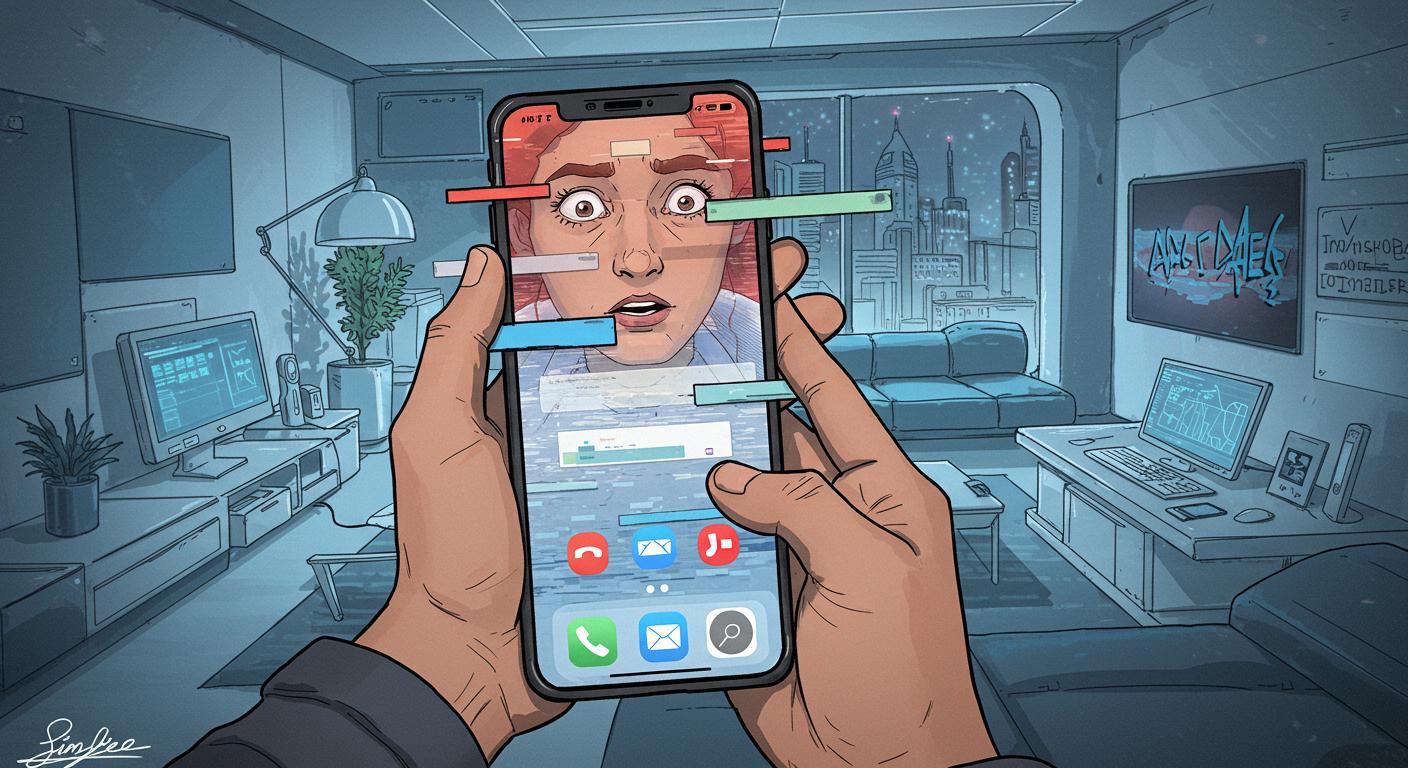Some news stories appear, fully clothed, prepared for the spotlight. Others, like Apple’s latest FaceTime feature, seem to stumble in through the wrong door, halfway through changing. In the developer beta of iOS 26, FaceTime now pauses both video and audio if it detects someone undressing—effectively deploying a digital cold shower right in the middle of your call. According to reports circulating in places like TechSpot, users are greeted with a pop-up that gently suggests, “you may be showing something sensitive,” and queries whether you’d like to resume or end the performance. One must wonder, where exactly is the line between a cozy cardigan change and a breach of machine-learned modesty?
Machine Modesty: There’s an Algorithm for That
The roots of this feature trace back to Apple’s family safety initiatives. As detailed in PhoneArena’s review, Communication Safety has long scanned photos sent to kids for nudity, but iOS 26 quietly extends this caution to live video. It wasn’t part of Apple’s WWDC 2025 fanfare, possibly because it makes for a less photogenic demo.
Interestingly, as PhoneArena notes, this protective feature appears in the iOS 26 beta not just on child accounts but across all users—either the broadest interpretation of “family safety” yet, or another gently embarrassing example of beta feature leakage. Livemint relays that the public’s response has ranged from bemused skepticism (“Is Apple really watching?”) to open logistical debate: “How much undressing is undressing, exactly? Does removing a scarf at the wrong angle lead to FaceTime’s version of a record scratch?”
A detail highlighted by Techweez pinpoints another layer: the technology functions using on-device machine learning, not Apple’s watchful eye in the cloud. Allegedly, your clothing status is reviewed only by the cold, impartial gaze of the silicon inside your phone—no bored Apple engineer judging your choice of novelty boxers. By analyzing video frames directly on the device, the company maintains that FaceTime calls remain encrypted and private. Earlier in the reports, Apple’s official support communications echo this: no content leaves your phone, no notification gets sent if you’re caught in your birthday suit.
The Law of (Un)intended Consequences
With protective algorithms in play, the digital prude is no longer metaphorical. As TechSpot and others have mused, there’s considerable ambiguity about thresholds: just how much skin before FaceTime hits the brakes? Even ordinary actions—peeling off a jacket, dealing with an unruly spaghetti noodle, or standing too close to a peach-colored wall—could, in theory, rouse the digital chaperone. Techweez ponders the entertainment potential of false positives: “Given the complexity of real-time video analysis, false positives could be an issue.” Will virtual meetings be enlivened by the suspense of unintentional video freezes, triggered by the world’s most modest circuit board?
And in a delicious twist, some users in the beta have found that toggling the feature off doesn’t always disable it—a bug, Livemint suggests, or perhaps a philosophical statement about the inevitability of modesty in the camera age.
Reflections from the Well-Adjusted
For those who prefer their privacy with a side of algorithmic discretion, the story’s not all digital slapstick and philosophical musing. Extending on-device content moderation from static images to live conversations is a logical, if slightly overzealous, next step for Apple’s suite of safety tools—a move Techweez describes as expanding “peace of mind to parents whose children use the service.” Yet, the sudden extension of parental controls to all, regardless of age or intent, turns the personal smartphone into a kind of universal lifeguard, ready to blow the whistle at the slightest infraction.
Naturally, privacy purists grow wary whenever a machine starts deciding what is and isn’t suitable for viewing—even if, as PhoneArena underscores through Apple’s statements, none of these digital judgments ever leave the device. As users, we’re left to trust that our iPhones know the difference between wardrobe malfunction and artistic freedom, even if we’re not always confident ourselves.
So, is this mandatory modesty a sign of our increasingly cautious tech environment, or just a fascinating side show on the road to smarter, safer communication? In a world where FaceTime might accidentally censor your new hat before you can say “look what I bought,” it’s hard to say for certain. One thing is clear: Apple’s newest update may save you from embarrassment, but it might just deliver a few unexpected ones along the way.
How many wardrobe changes before your phone draws the line? Apparently, only the algorithm knows for sure.







